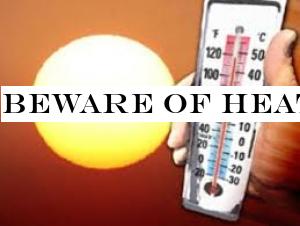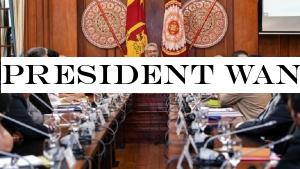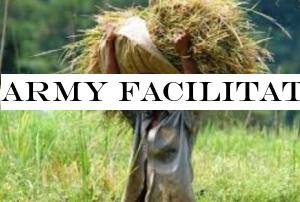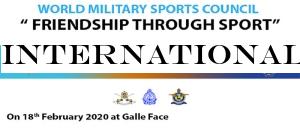Music
Trailers
DailyVideos
India
Pakistan
Afghanistan
Bangladesh
Srilanka
Nepal
Thailand
Iraq
Iran
Russia
Brazil
StockMarket
Business
CryptoCurrency
Technology
Startup
Trending Videos
Coupons
Football
Search
Download App in Playstore
Download App
Best Collections
Srilanka

The Health Ministry has advised school authorities to exercise caution at sport meets and outdoor events held these days owing to the hot and humid weather now.The Health and Indigenous Medicine Ministry has laid down several instructions to the Education Ministry to follow during school events held. School authorities have been advised to take precautionary measures to protect students
from heat related complications. Under these precautionary measures students are advised to drink plenty of water and to wear a cap to protect from direct sunlight when outside of class rooms, or use an umbrella when going out, apply water on face and limbs when exposed to excessive heat,desist from exercises from 11am to 3.30 pm outdoors.
School authorities have been requested to provide enough drinking water facilities for students, make ready first-aid units in schools and advice students and teachers about heat strokes and precautionary measures.Students may suffer from tension and muscle cramps while several chronic diseases may come up such as heart or lung diseases and they may become unconscious due to the high temperature, the Ministry warned.
Asked if this could mean that Colombo and some parts of the country are likely to experience any extreme events that may be hazardous to health, Karunanayaka said, &The public may take care, but there is no heat duration index as such to give rise to any heat wave warnings.&
&There is certainly a rise in temperature, but the heat index has not reached that level where we must give any warnings about heat waves,& he explained.Colombo, Ratnapura and Kurunegala have recorded above-average temperatures, but they have not met the criteria that compel the Department to issue any warnings of heat waves, a Met Department Duty Officer said when asked about the situation.
Director General Karunanayaka said, the good news is that although the country is destined to experience hot weather during February and March, there will be a change in weather in the next few days (today and tomorrow), as there will be rains in the eastern and Uva provinces and in the Matale district.&Theregoing to be heat, but therenot going to be a weather like that in India where thereheat winds that affect public health,& he said.
- Details
- Category: Srilanka
Read more: Beware of heat stroke: Schools told to exercise caution
Write comment (97 Comments)
President Gotabaya Rajapaksa says that the present education system should be reformed in order to achieve a rapid growth in economy.During the meeting at the Presidential Secretariat today (10) the president advised the vice-chancellors and the officials of the University Grants Commission to revise the university course system in accordance with the local and international job market demand.
President added that Sri Lanka possesses an educated, technology-savvy labour force which is more than capable in aiding and pushing Sri Lanka towards development.President Rajapaksa went on to note that employment generation centered around Tourism, Cultivation and Plantations could jump-start the economy. He highlighted that despite the number of job vacancies in the areas of Medicine, Engineering, Nursing and Information technology the university system had failed to address the issue over the time.
President pointed out that it is absolutely necessary to consider these grave issues when forming policies relating to tertiary education.President further added that the addition of Information Technology and a language as a subject for Arts degrees would pave the way for an expedited development process within the next three years.&University course contents should serve the job market demand and political pressures and other interference should be ignored in this matter. We can never compromise our nation. Take right decisions to make this country strong again&. President requested the Vice Chancellors.
- Details
- Category: Srilanka
Read more: President wants a university curricular fitting the job market demand .
Write comment (94 Comments)
A smart card and an online E-ticketing system would be introduced for easy seat reservation in trains, Transport Minister Mahinda Amaraweera said.He said a Cabinet Paper would be submitted in this regard soon.It was reported that the present ticketing and reservation system had loopholes for scammers to cheat local and foreign passengers.&Certain brokers used to sell the seat reservation tickets several times higher than the original price. It was reported that Rs. 1,200 ticket was being sold for Rs.3, 000 and Rs.4, 000,& the Minister said.
- Details
- Category: Srilanka
Read more: Smart card, E-ticketing system for railway seat reservations
Write comment (90 Comments)
Sri Lanka Army (SLA) has facilitated the Paddy Marketing Board (PMB) to purchase over 3,268,600 kilos of paddy worth of over Rs. 163,430,000 during last two weeks.
- Details
- Category: Srilanka
Read more: Army facilitates PMB to buy over 3.2 m kilos of paddy worth Rs. 163.4m
Write comment (95 Comments)
International Military Sports Council (CISM) Day Run is organized annually by member countries of International Military Sports Council to celebrate its anniversary worldwide. It is in this backdrop, the Sri Lanka Navy is organizing the CISM Day Run & 2020 which is scheduled to be flagged off at the Galle Face Green on 18th February 2020 at 5.30 a.m., with the attendance of tri-service personnel and distinguished invitees.
- Details
- Category: Srilanka
Read more: International Military Sports Council Day Run in Colombo
Write comment (94 Comments)
The World Health Organization (WHO) declared the Public Health Emergency of International Concern (PHIEC) on January 30, 2020, under the International Health Regulations (IHR) of 2005 over the rapid spread of novel coronavirus which was first reported in Wuhan, China.
As the Emergency Committee of Independent Scientific Expertise of the WHO was split fifty-fifty at the first meeting held on January 23, the Committee could not finally agree that the event constitutes a global health emergency. The WHOdecision had surprised many global health experts, particularly after seeing the urgency and severity of Chinainternal response. However, the rapid growth of confirmed cases in other countries has finally led the WHO to declare a global health emergency.
SPREAD OF VIRUS
Coronaviruses (CoV) are a large family of viruses that cause illnesses ranging from the common cold to more severe diseases such as Middle East Respiratory Syndrome (MERS-CoV) and Severe Acute Respiratory Syndrome (SARS-CoV). The novel Coronavirus (nCoV) is a new strain that has not been previously identified in humans.
The number of reported cases doubles every day and at the time of writing, 304 people have died and 13,000 patients have reported from 28 countries including the United Arab Emirates, Australia, United States of America, Russia, Singapore and Canada, covering the major continents of the world. Now, it has started to transmit from the second patient to the third, the pathogen being transmittedfrom the victim to a third person. This disease has been classified as a Class B disease placing it in the same category as SARS and HIV/AIDS.
The Emergency Committee appreciated the extraordinary support and political commitment of the Chinese government to investigate and contain the current outbreak. The Committee also acknowledges that the Chinese government is always in contact with the WHO, sharing necessary data to prevent further spread. It advised the WHO to provide intensified technical and operational support for preparation and response to this outbreak, especially in vulnerable countries and regions.
It also emphasized the need for developing access to potential vaccines, diagnostics, antiviral medicines and other therapeutics for low- and middle-income countries. Further, for the prevention of secondary transmission and contributing to the international response though multi-sectoral communication and collaboration, active participation was highlighted in increasing knowledge of the virus and the disease, as well as advancing research. The Committee has not yet recommended any travel or trade restriction based on the current information available.
PHEIC declaration
The declaration of PHEIC was firstly made in 2003 after the SARS outbreak created a huge health problem. The SARS also started in a live animal market in China where the infected excrement was transmitted to humans. The declaration was made when there were over 8,000 reported infectious cases and more than 750 deaths in 37 countries. Of the SARS infected people, 11 percent died.
According to the WHO, the PHEIC is declared when there is &an extraordinary event which is determined … to constitute a public health risk to other states through the international spread of disease.&
Accordingly, two criteria have to be fulfilled:
1.) the outbreak must pose a risk to more than one country and
2.) the outbreak must require a coordinated international response.
However, though these legal elements are fulfilled in serious situations, the PHEIC can only be declared by the WHO Director-General. The Director-General has to consult the Emergency Committee of Independent Scientific Experts before declaring the PHEIC and accordingly, the committee advises as to how to resist the spread of the epidemic with least disruption to trade and travel. They further provide appropriate recommendations to control the situation. On January 23, WHO Director-General Tedros Adhanom Ghebreyesus declared that though coronavirus fulfills the criteria of the PHEIC, he had to go by the Committeeadvice.
In the recent past, such emergencies have been declared in response to the SARS epidemic in 2003, swine flu in 2009, Ebola outbreak in West Africa between 2014 and 2016, polio in 2014, Zika virus in 2016 and Ebola outbreak in the Democratic Republic of Congo in 2019. Interestingly, though the WHO is not a political institution, politics has not been totally separated from the WHO. In relation to the Ebola outbreak, the WHO took around one year to declare the PHEIC due to various political reasons.
Learning from the past (especially the SARS outbreak), with the first occurrence of infection in December 2019, the Chinese authorities have promptly responded to declare an outbreak of coronavirus and they identified the pathogen within a week. Nonetheless, the true extent of the coronavirus is still unclear. The prompt response from China had also delayed the proposed January 23rd PHEIC declaration. The quarantining of 41 million people in 13 cities of China has proven to the world community that China has taken all possible measures to control the spread.
The entire Wuhan city, which is a major transport hub in Central China has been locked down with all highways, subways, railways and airports closed until further notice. However, it is difficult to justify the isolation of people at this stage, especially the foreigners in those areas as they have a right to return to their countries of origin.
ASSUMPTIONS ON VIRUS OUTBREAK
Some suspect that the Wuhan National Biosafety Laboratory which was constructed following the SARS outbreak to prepare for and respond to future infectious diseases has mistakenly released this deadly virus. On the other hand, some experts view that coronavirus is a result of the non-regulation of wildlife trade and animal health. They argue that wildlife trade was the reason for SARS and thus, it has to be prohibited for the safety of human health and also for the protection of biodiversity in South-East Asia.
PHEIC FOR INT&L COOPERATION
As the WHO has declared the PHEIC, it provides the background for enhancing diplomatic relations and boosting health measures including preventing an outbreak through international cooperation. Despite the friendly foreign relations with China, the declaration of the PHEIC has also influenced the evacuation of 33 Sri Lankan students in Wuhan. The SriLankan Airlines& special flight returned to Mattala Airport with the students and they are under quarantine at the Diyatalawa Army Camp at the moment. Sri Lanka is the fourth country that could repatriate nationals stuck in Wuhan. India, Turkey, Japan and South Korea will also take immediate action to repatriate their nationals with proper quarantine procedures.
At the time of writing this article, Sri Lanka has not decided to suspend her flights to China. However, the PHEIC can be further used as a justification in imposing temporary travel restrictions against China. The UK, the USA, France, Canada, Iran, Uzbekistan and many other countries have already suspended all their flights to China on a temporary basis due to this outbreak. The USA and Australia have made travel restrictions on entry for travellers (not to their citizens) who have been in China for the last two weeks. The USA has further declared the coronavirus outbreak as a public health emergency.
Although continuing flights to China would strengthen the China&Sri Lanka relationship, it should not affect the well-being of the citizens. On the other hand, as many Chinese are working in large-scale projects in Sri Lanka, there should be a proper monitoring mechanism to create awareness and identify the inflected people without creating any unnecessary stigma against the Chinese community.
FALL IN ECONOMY
The virus has also been affecting Chinaeconomy, the worldsecond-largest economy, with a growing number of countries advising its citizens to avoid all non-essential travel to China and to avoid using Chinese products. In 2003, the PHEIC dropped down the foreign tourism revenue by 60 percent while Hong Kongeconomic development dropped down by 40 percent.
Economists have estimated that the SARS was responsible for lowering Chinaeconomic growth by one to two percent in 2013. Similarly, the coronavirus outbreak would definitely hit the Chinese economy. As Sri Lankaforeign investments and debt servicing are dominated by China, the Sri Lankan government has to be responsible in handling the situation. Conversely, it should not betray the health concerns of the public.
- Details
- Category: Srilanka
Read more: Global 'public health emergency'
Write comment (95 Comments)Page 60 of 392

 6
6





